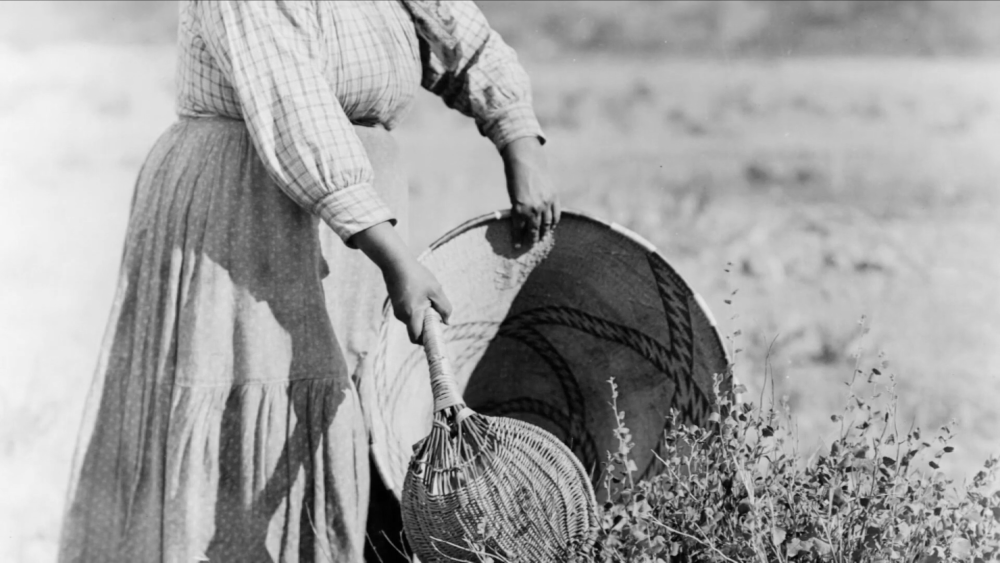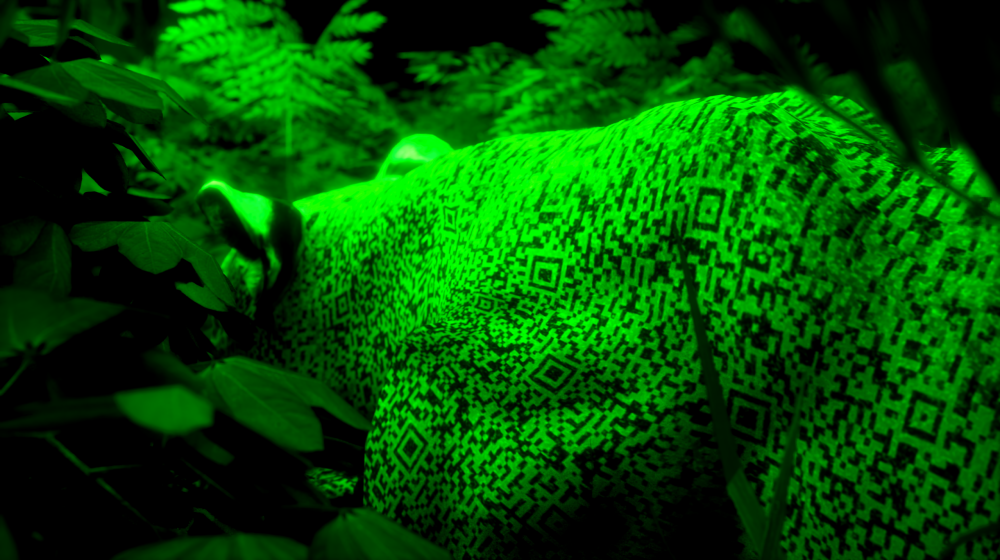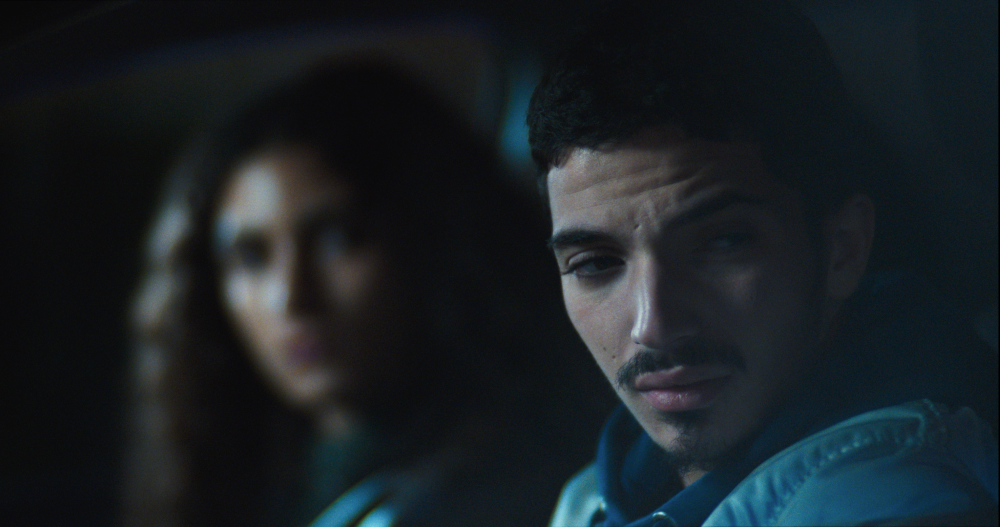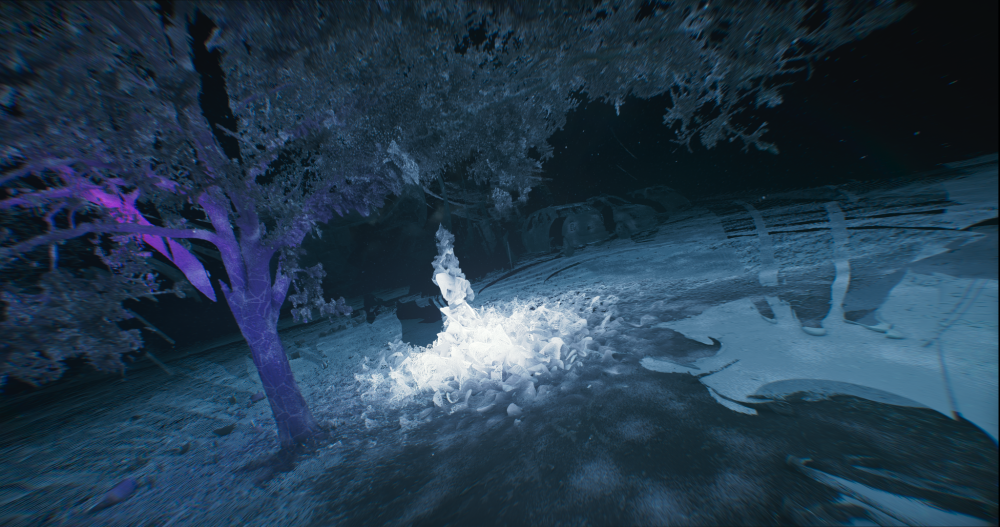
With an introduction from Corina Copp, Perwana Nazif, and Gelare Khoshgozaran.
Political-Psychic Praxis & Palestinian Solidarities is Part II of an ongoing collaboration between Rotations film series and writer Perwana Nazif that reflects on artistic and written iterations of “political-psychic praxis”—the recognition of political, social, and structural determinants of the psyche. Following the recent screening of artist Mireia Sallarès’s Potential History of Francesc Tosquelles, Catalonia, and Fear, this program will gather short films by “undisciplinary” artists Rosalind Nashashibi, Gelare Khoshgozaran, Mohamed Bourouissa, Larissa Sansour + Søren Lind, Jocelyne Saab (1948–2019), and The Otolith Group.
Rotations and Nazif are also interested in political-psychic praxis as it is defined by state-operative uses of so-called madness and/or pathology that operate within segregationist, carceral, and, indeed, genocidal logic. This weaponization of diagnosis (and actualized debilitization) tends toward violent power grabs for knowledge production by which to name and produce reality, scientific truths, or conceptions of “normal” and “abnormal.” In this sense, then, political-psychic praxis also calls attention to psychological liberation and psychoanalysis as politically engaged practices for abolitionist and liberatory work. With this in mind, and in solidarity with the people of Palestine, this program’s films tend to make further connections, both direct and abstract, to artist cinema as a site for revolutionary politics.
The Retreat
As a process based film, The Retreat delves into the temporal, spatial and relational effects migratory movements have on the body and mind of the exile. The film was produced through a discursive and community-oriented process, central to which was an ‘exile retreat’ organized by the artist, with participants recruited through an international open call. The film interweaves recorded fragments from the retreat with dream-like scenes which explore the connections between exile, desire and antifascism. The international group of participants and collaborators convened for the week-long retreat in Monistrol-d'Allier in the south of France to collectively reflect on the relation between mental health and the experience of exile or seeking asylum. One of the main historical and political reference points for both the exile retreat and the film was the history of the nearby psychiatric hospital (asylum) in Saint-Alban-sur-Limagnole, Lozère and the radical legacies of Catalan psychiatrist Francesc Tosquelles, to consider exile as a space for transnational solidarity.
The whispering of ghosts
In “Le murmur des fantômes,” Bourlem Mohamed, interviewed by Bourouissa recalls being tortured by the French colonial police, speaks about his garden in the hospital and his illness, questions Bourouissa about the artist leaving his homeland to work abroad, and helps him design a garden that will be subsequently built in Liverpool. This is a composite image, an arrangement of irreconcilable fragments, the fissures between them made even deeper by the episodic appearances of the inimitable voice of Franz Franon, heavy with a Caribbean accent, describing the psychological damage that domination inescapably inflicts to the colonial subject.
Humaniora
Observing the architecture of the State’s attitude to care. Humaniora looks at British hospitals from two ideological eras; Victorian, and post-war. The film was made after the Thomas Mann novel The Magic Mountain , where sickness and convalescence become the creed for an elevated society.
Palestinian Women
“I wanted to present images, of which there were very few then, of these women, Palestinian fighters in Syria. We are talking about just before Sadat’s visit to Israel, and therefore the situation was very tense. While I was editing the film in the offices of Antenne 2, Paul Nahon, then head of the foreign editorial department, grabbed me by the collar and threw me out of the editing room. Palestinian Women was put in the freezer and has never been shown on television.”
- Jocelyne Saab
With thanks to Mathilde Rouxel, Association Jocelyne Saab
In Vitro
Commissioned by the Danish Arts Foundation for the 58th Venice Biennale, In Vitro, co-directed with Søren Lind, is a 2-channel Arabic-language sci-fi film filmed in black and white. It is set in the aftermath of an eco-disaster. An abandoned nuclear reactor under the biblical town of Bethlehem has been converted into an enormous orchard. Using heirloom seeds collected in the final days before the apocalypse, a group of scientists are preparing to replant the soil above.
I See Infinite Distance Between Any Point And Another
I See Infinite Distance Between Any Point and Another (2012) might be understood as a study in gestures and as the second chapter, following from Hydra Decapita (2010), in The Otolith Group’s trilogy of works on hydropolitics and hydroaesthetics. The film departs from and returns to a reading of Sea and Fog (Nightboat Books, 2012) by renowned Lebanese-American poet Etel Adnan. Sea and Fog draws upon the powers of philosophy to pursue the continuous mutation of matter into velocity. If poetry can be understood as a study in constraint, I See Infinite Distance Between Any Point and Another can be understood as an experiment in concentration that speaks of the mobility of thought, and the movement of the ocean.




